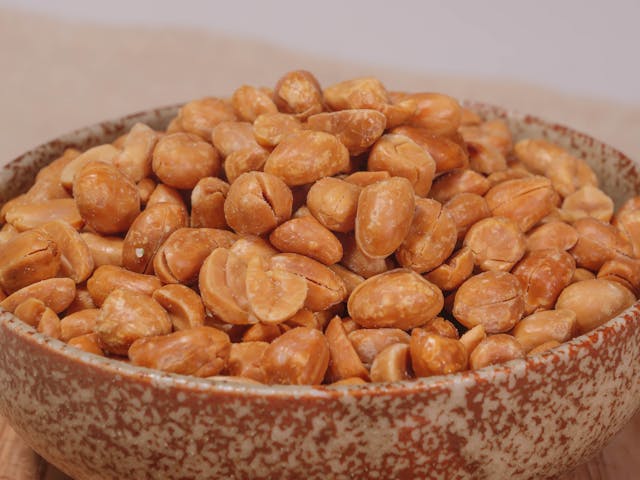Call Today to Schedule an Appointment: 212-319-5282
How to Manage Food Allergies Safely and Effectively
How to manage food allergies safely and effectively is one of the most important health goals for millions of individuals living with dietary restrictions. In a bustling food hub like New York City, where exposure to hidden allergens can happen in restaurants, bakeries, or even grocery stores, it’s crucial to have a solid allergy management plan to stay safe and healthy.
Whether you’ve been recently diagnosed or have lived with food allergies for years, proper education and a proactive approach can significantly reduce your risk of accidental exposure and improve your quality of life.

What Are Food Allergies?
Food allergies occur when the immune system mistakenly identifies a certain food protein as harmful. This reaction can range from mild irritation to severe, life-threatening anaphylaxis. Unlike food intolerances, food allergies involve the immune system and can be triggered by even trace amounts of the allergen.
Common food allergens include:
- Peanuts
- Tree nuts (e.g., almonds, walnuts, cashews)
- Milk
- Eggs
- Wheat
- Soy
- Shellfish and fish
- Sesame (now considered a major allergen under U.S. law)
Signs and Symptoms to Watch For
Recognizing symptoms of food allergies is critical to prompt treatment. Reactions typically occur within minutes to two hours after eating the allergen. Signs may include:
- Hives, itching, or eczema
- Swelling of the lips, face, tongue, or throat
- Wheezing, nasal congestion, or trouble breathing
- Stomach pain, vomiting, or diarrhea
- Dizziness or fainting
- Anaphylaxis – a potentially life-threatening reaction that requires immediate medical attention
Accurate Diagnosis Through Allergy Testing
If you suspect a food allergy, an evaluation by a board-certified allergist is essential. At your consultation, the allergist may use:
- Skin prick testing: Identifies immediate allergic reactions to specific foods
- Blood testing (specific IgE): Measures allergy-related antibodies in your bloodstream
- Oral food challenge: Performed under medical supervision to confirm or rule out an allergy
Getting the right diagnosis can help avoid unnecessary dietary restrictions and prevent serious allergic reactions.
Effective Strategies for Living with Food Allergies
Managing food allergies requires constant vigilance, especially in a fast-paced city like NYC. Here are key strategies:
- Read Labels Thoroughly: Always check ingredient lists for allergens and look for “may contain” or “processed in a facility” warnings.
- Inform Others: Notify restaurant staff, school administrators, coworkers, and friends about your allergies.
- Carry Emergency Medication: Always have an epinephrine auto-injector (like EpiPen) and know how to use it.
- Use Allergy Cards: Especially useful in restaurants — these clearly list your allergens and can be handed to chefs or servers.
- Wear a Medical Alert Bracelet: This helps first responders quickly identify your condition in case of an emergency.
Special Considerations for Children
For children with food allergies, additional precautions are needed. These include:
- Allergy action plans shared with schools and caregivers
- Education for teachers and peers on avoiding cross-contamination
- Safe snack lists and allergy-friendly lunch preparation
Working closely with a pediatric allergist can help ensure that kids stay healthy and included in social activities without compromising safety.
Looking Toward the Future: Can Food Allergies Be Treated?
While there’s no universal cure for food allergies, advances in treatment — such as oral immunotherapy (OIT) — are offering hope. Under the guidance of an allergist, patients are exposed to tiny, gradually increasing amounts of the allergen to build tolerance over time.
Though not suitable for everyone, these cutting-edge treatments may be a game-changer for some individuals with severe or life-threatening allergies.
Find Expert Help for Food Allergy Management in NYC
If you’re ready to take control of your food allergies, expert care is essential. Schedule a consultation with Dr. Boyan Hadjiev at Allergy, Asthma and Sinusitis P.C., where you’ll receive a customized management plan based on your specific needs and lifestyle.
Allergy, Asthma and Sinusitis P.C
Boyan Hadjiev, MD
30 East 40th Street
Suite 1200
New York, NY 10016
212-319-5282
Live confidently with food allergies—get the support you need from one of NYC’s top allergists.
Serving all of New York City and the Tri State Area including Zip Codes: Top Allergist NYC Midtown, Chelsea and Clinton: 10001, 10011, 10018, 10019, 10020, 10036 | Gramercy Park and Murray Hill: 10010, 10016, 10017, 10022 | Greenwich Village and Soho: 10012, 10013, 10014 | Lower Manhattan: 10004, 10005, 10006, 10007, 10038, 10280 | Lower East Side: 10002, 10003, 10009 | Upper East Side: 10021, 10028, 10044, 10128 | Upper West Side: 10023, 10024, 10025
